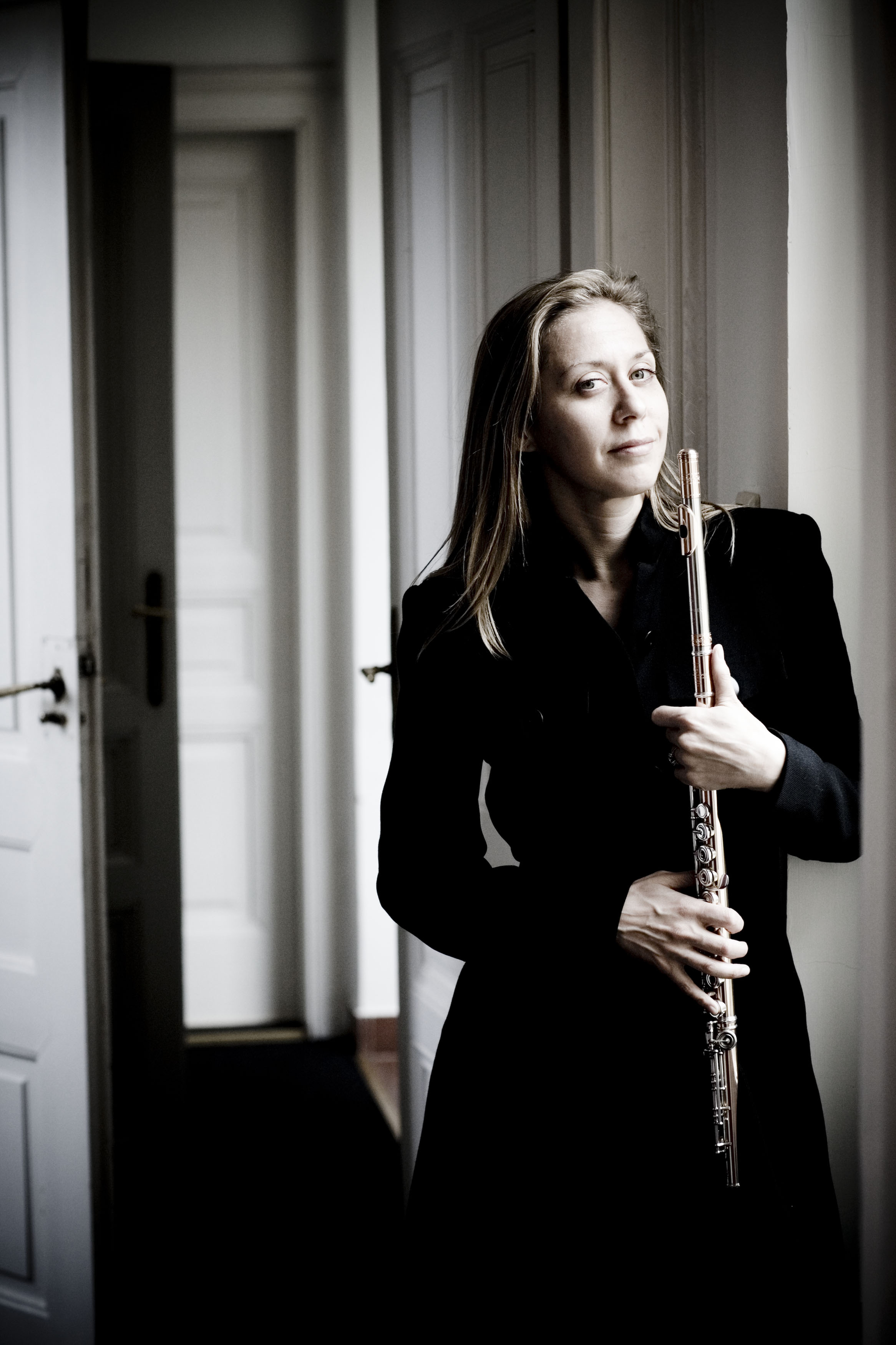By Stephen Brookes • The Washington Post • October 17, 2014
What, exactly, are they putting in the water at the Marlboro Music Festival?
Not only is the virtuosity of “Musicians From Marlboro” (an ensemble of festival alumni who tour the country every year) consistently jaw-dropping, but — as they showed Thursday night at the Freer Gallery — the freshness, rich imagination and sheer vitality of their playing is enough to make even the most jaded concertgoer edge to the front of his seat. Marina PiccininiTake, for instance, the larger-than-life performance of Endre Szervánszky’s “Trio for Flute, Violin and Viola,” which opened the program. Hungarian to its bones, it’s a lyrical, earthy showpiece for the flute, steeped in folk melodies and unabashedly out to charm. Flutist Marina Piccinini’s enthusiasm for the work was infectious, and she turned in an extroverted and full-blooded performance, with Nikki Chooi on violin and the riveting violist Wenting Kang — who stood out even in a supporting role.
Marina PiccininiTake, for instance, the larger-than-life performance of Endre Szervánszky’s “Trio for Flute, Violin and Viola,” which opened the program. Hungarian to its bones, it’s a lyrical, earthy showpiece for the flute, steeped in folk melodies and unabashedly out to charm. Flutist Marina Piccinini’s enthusiasm for the work was infectious, and she turned in an extroverted and full-blooded performance, with Nikki Chooi on violin and the riveting violist Wenting Kang — who stood out even in a supporting role.
Harpist Sivan Magen and the Grammy-winning violist Kim Kashkashian joined Piccinini for the far more delicate “Sonata for Flute, Viola and Harp” by Claude Debussy. Evanescent and chimerical, it shimmers with the exotic colors of a dream — and bares, from time to time, a set of sharp and elegant fangs. Piccinini’s playing captured that hallucinatory sense of the work, dancing over Magen’s deft acrobatics on the harp, while Kashkashian grounded it all with a darker, complex and sometimes wonderfully savage approach.
György Kurtág is one of the most gifted composers of this or any other era, and his string quartet Op. 28 from 1989 — the “Officium Breve in Memoriam Andreae Szervánszky” — is among his most deeply moving works. Spare, suggestive and aphoristic, the work’s 15 brief movements form a profound meditation on death and loss, closing with a hymn-like movement that ends — almost heartbreakingly — in mid-phrase. Kashkashian and Chooi were joined by David McCarroll on violin and cellist Karen Ouzounian for an exceptionally thoughtful reading of this searing and flawless work.
Beethoven’s String Quintet in C, Op. 29, closed the program, and if you like middle-period Beethoven — lively, charming, a little rambunctious, without the vertiginous depths of his later music — then you were in luck. McCarroll set the tone with a light, fluid touch, and feisty interplay among all the players made for a spirited end to the evening.